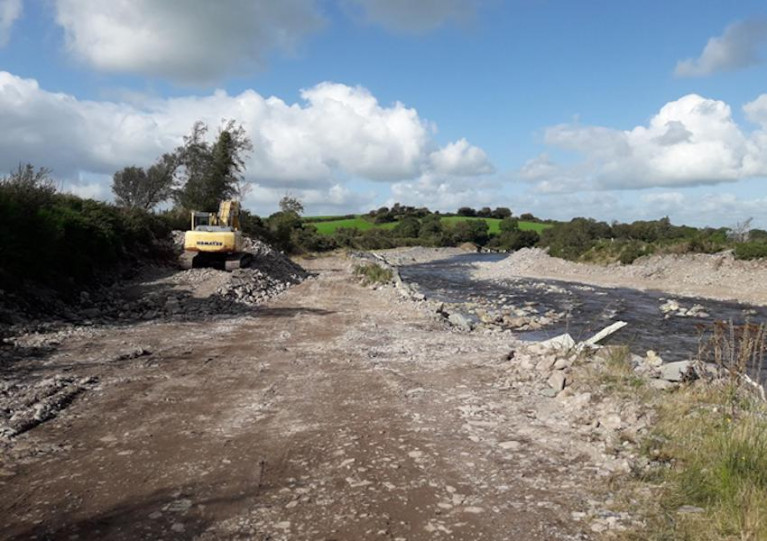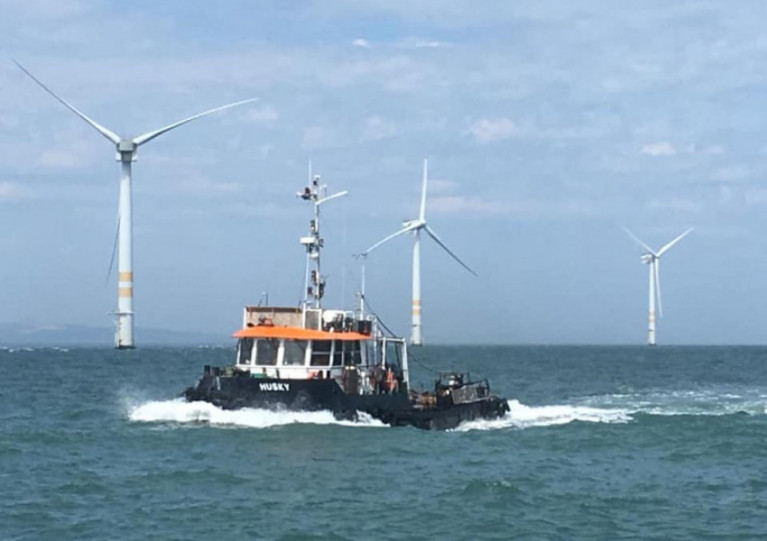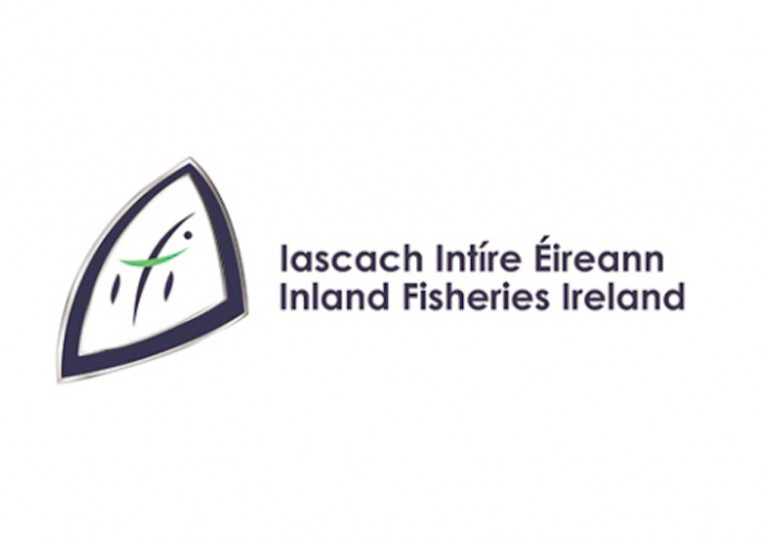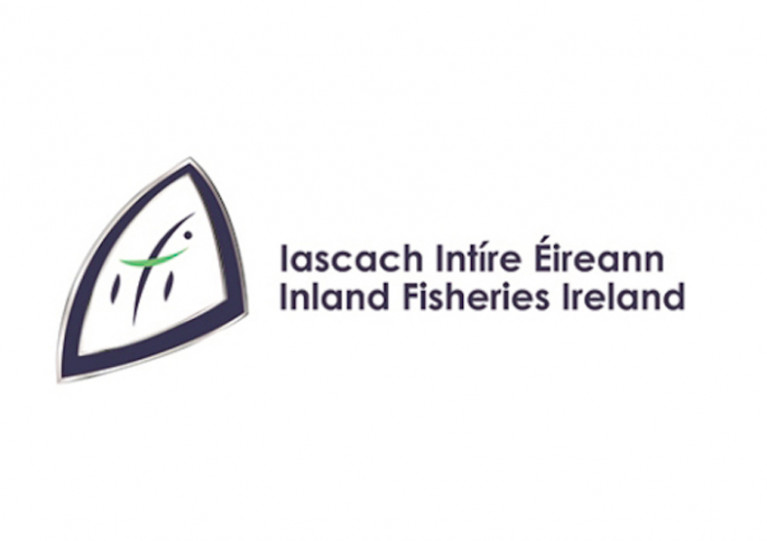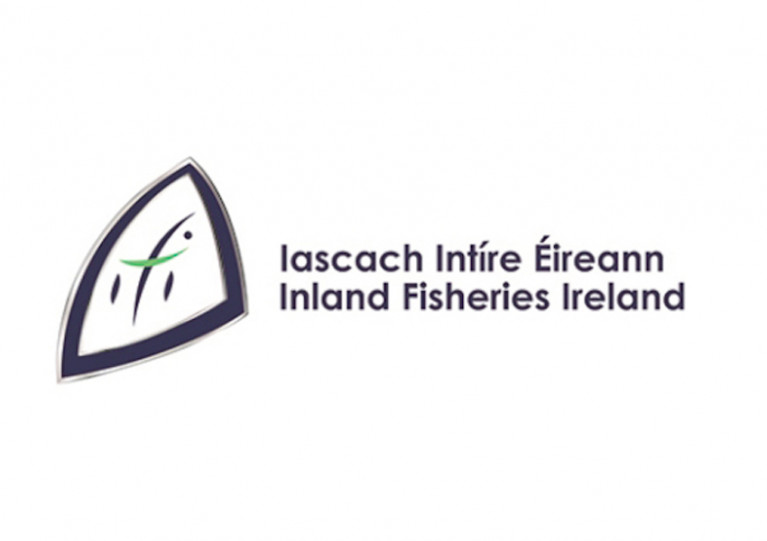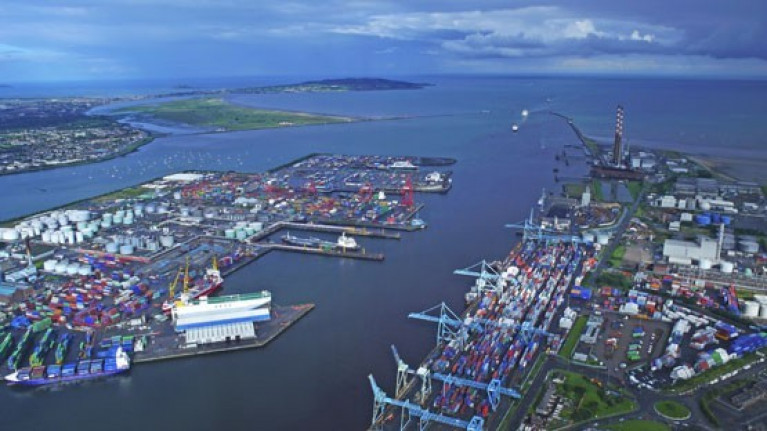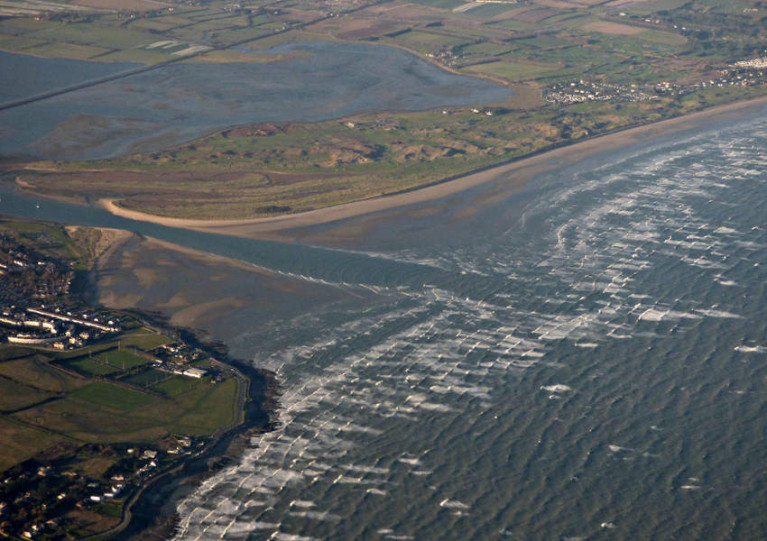Displaying items by tag: Courts
A Cork man has been jailed for four months on three charges including assault on a fisheries officer.
Jason Callaghan, with an address on Lower Barrack Street, was convicted by Judge Brian O’Shea at a special sitting of Midleton District Court on Tuesday 27 April.
The court was told how officers from Inland Fisheries Ireland (IFI) had observed Callaghan illegally fishing with two other men in the Owenacurra River at the Cork Road Bridge in Midleton on the afternoon of Sunday 21 July 2019.
At the time, the river was closed to angling for the protection and conservation of salmon and sea trout stocks.
The court heard Callaghan fled the scene when approached by fisheries officers. He was then pursued from the river to the town centre where he assaulted a fisheries officer with the metal end of a fishing rod, injuring the officer and causing him to fall to the ground.
The assault was witnessed by a plain-clothes garda attending the incident. The garda also gave evidence during the hearing which lasted for several hours.
Judge O’Shea fined Callaghan €500, handing him an additional two-month custodial sentence for use of a strokehaul. Callaghan was further convicted of impeding an authorised officer and was given a four-month custodial sentence for assaulting an authorised officer, to run concurrent with the two-month sentence.
Callaghan, who had previous fisheries convictions, fully contested the charges and gave evidence to the court.
Kieran Ryan of Bishopstown and Calvin Morrissey of Carrignavar, who had been illegally fishing with Callaghan, were also convicted. Ryan received a two-month custodial sentence for use of a strokehaul and one month for impeding an authorised officer. Morrissey was convicted of use of a strokehaul and impeding an authorised officer and fined €500 on both counts.
All the charges were brought under the Fisheries (Consolidation) Act 1959.
Judge O’Shea rejected submissions from legal representatives for the three accused and stated that Callaghan had told lies in the witness box which he “expressly rejected”. He noted that there was “no hint of an apology and no remorse shown” by Callaghan or his co-defendants.
Sean Long, director of the South Western River Basin District, said: “The safety of our fisheries officers is of utmost importance to IFI. This was a reckless assault on an officer in broad daylight on a busy street which could have had significant consequences for a man simply trying to carry out his job.
“Thankfully, our staff member was back at work after a couple of days and able to continue protecting our fisheries resource.
“I hope these custodial sentences will give would-be offenders pause for thought. An assault on a fisheries officer is a severe matter and we will continue to prosecute offenders without exception.”
A Clonmel man has been convicted on five charges including assaulting fisheries officers stemming from a poaching incident at Inniscarra Dam in May last year.
Officers of Inland Fisheries Ireland (IFI) had observed Craig Brew fishing in a prohibited area known as the ‘Flush’ at the face of the ESB dam on 23 May 2020.
Evidence was heard that Brew — who had travelled from Tipperary to Cork during the COVID-19 lockdown — had refused to cooperate and violently threatened and resisted the fisheries officers before gardaí arrived to assist.
Brew was convicted by Judge Marian O’Leary at Cork District Court on Wednesday 21 April and fined €500 for illegal entry upon the private fishery, €400 for obstructing the fisheries officers, €500 for assault and €300 for not having a Salmon Rod Ordinary Licence.
Judge O’Leary also fined the defendant €300 for using a vehicle to aid the commission of an offence and considered an ancillary disqualification for the use of the vehicle. Costs of €400 were awarded to IFI and an order for forfeiture of the fishing rods used was granted.
Sean Long, director of the South Western River Basin District, said: “The welfare of our Fisheries Officers is of foremost importance to IFI and that they can carry out their necessary work while ensuring their own personal safety. We are concerned at the level of threatening and aggressive behaviour towards fisheries officers in the area and on social media.
“While we are satisfied with the convictions in this case, an assault on a fisheries officer is a severe matter and offenders will be prosecuted without exception. I urge anglers and members of the public to report illegal fishing through IFI’s confidential hotline on 1890 34 74 24 or 1890 FISH 24.”
The trial of a man accused of murdering his wife on a boating holiday in Co Fermanagh has heard the company that hired out the boat to the accused had failed to supply enough lifejackets on board, as BBC News reports.
Stephen McKinney of Fintona, Co Tyrone denies the murder of Lu Na McKinney, the 35-year-old mother of two whose body was found near Devenish Island on Lough Erne in April 2017.
It was originally suspected that McKinney slipped from the deck of the boat which was hired from Manor House Marine, a director of which was questioned during the second day of the murder trial at Dungannon Crown Court yesterday, Thursday 29 April.
The director admitted that the correct checks on paperwork for the boat rental had not been completed, and lifejackets were not supplied for the family’s two children.
He also denied that the so-called ‘boat acceptance certificate’ was filled in after the fact of the tragic death for insurance purposes.
BBC News has much more on the story HERE.
A farmer from Beaufort in Co Kerry was convicted and fined €3,300 plus costs following a prosecution taken by Inland Fisheries Ireland (IFI).
In a hearing at Caherciveen District Court on Thursday 10 December, Judge David Waters convicted Raymond Breen under Section 173 (d) of the Fisheries Consolidation Act 1959 for carrying out works in the Gaddagh River which damaged sensitive spawning beds.
While a charge of obstruction was struck out, Judge Waters commented that he could not ignore the defendant’s behaviour when considering the appropriate penalty.
The Gaddagh River, a tributary of the River Laune and in a Special Area of Conservation (SAC), is an important spawning habitat for Atlantic salmon, a species protected under Irish and European law.
The court heard evidence that an inspection carried out by IFI fisheries officers discovered substantial amounts of spawning gravel removed from the river and stock-piled along a 250m section of bank.
Heavy machinery tracks were recorded across the riverbed, the protected spawning gravels and on both banks.
Evidence was given that the engine of a tracked earth-mover at the site was hot when discovered but the driver could not be located. The scene was described in court as a “working site”.
Sean Long, director of the South Western River Basin District at IFI, said: “This is a serious environmental crime. The removal of gravel from spawning beds will directly impact our already endangered Atlantic salmon stocks by drastically reducing usable spawning gravel.
“We urge all landowners to take responsible action and to contact their advisors or Inland Fisheries Ireland before carrying out any works that may damage watercourses on or adjacent to their land.”
Arklow Wind Farm Site Licence Faces Objection from Planning Activist
A foreshore licence granted for expansion of an offshore wind farm near Arklow now faces a High Court challenge from an environmentalist and planning activist, as The Irish Times reports.
Peter Sweetman — whose previous objections include the proposals for a sea wall at US President Donald Trump’s Doonbeg golf resort — claims the purpose of the licence for site investigation works is to expand the current Arklow Bank Wind Park site from seven up to as many as 200 offshore wind turbines.
He also calls for ministerial decisions which resulted in the licence being granted to be quashed, arguing that they go against the EU Habitats Directive.
The Irish Times has more on the story HERE.
Co Galway Dairy Prosecuted Over Pollution of Deerpark River
A Co Galway dairy has been fined €1,000 following a successful prosecution for river pollution by Inland Fisheries Ireland (IFI).
At a sitting of Ballinasloe District Court on Thursday 1 October, it was heard that on 24 October 2019, IFI staff noticed a discharge of polluting matter entering the Deerpark River from Arrabawn Dairies, Kilconnell, Co Galway.
Results from samples showed higher-than-recommended levels for a number of parameters, including biochemical oxygen demand (BOD), ammonia and suspended solids.
Judge Gearty convicted Arrabawn Dairies under Section 171 of the Fisheries Acts and Section 4 of the Local Government (Water Pollution) Acts.
Fisheries Assistant Inspector Arnold Donnelly gave evidence emphasising the polluting nature of the discharge and that it was particularly unfortunate that the discharge occurred at a time of year when fish spawn in the river.
Judge Gearty fined the company €1,000 and awarded costs of €2,659 to IFI.
David Mc Inerney, director of the Shannon River Basin District at IFI, said: “Pollution events such as this have a very negative impact on water quality which is essential for the health of fish.
“The Deerpark River system is a tributary of the River Suck and holds excellent stocks of wild brown trout, crayfish and brook lamprey. Protection of water quality and habitats is critical to our rivers and fisheries ecosystems.”
A Co Cork dairy farmer has been fined €8,000 at Midleton District Court following a prosecution taken by Inland Fisheries Ireland (IFI).
On Thursday 12 November, Brian Duncan pleaded guilty before Judge Patricia Harney to polluting the Douglas River at Garryduff, Dungourney, Co Cork in April 2018.
The court heard that an initial discharge of slurry from his farmyard was followed by further reoccurrences, resulting in a number of court adjournments and hearings to allow completion of court-directed remedial works.
IFI gave evidence that the river had been severely polluted by the slurry discharges, which had rendered the riverine habitat inaccessible to spawning trout and salmon.
Evidence was also given that Duncan was running a large farm with a dairy herd in excess of 1,000 and that he had invested significantly in improving his yard facilities since the initial incident.
Judge Harney convicted Duncan under Section 171 (1) of the Fisheries Consolidation Act 1959 and Section 3 (1) of The Local Government Water Pollution Act 1977, awarding full costs and expenses of €8,139 to IFI.
While noting the remedial works, Sean Long, director of the South Western River Basin District, said: “Livestock manure and other organic fertilisers, effluents and soiled water have the potential to cause devastating effects on our fisheries resource.
“Good farmyard management and using preventative measures helps stop accidental discharges of polluting substances and protects the local environment, which will have a significant and lasting positive impact on valuable wild fish populations and general wellbeing in an area.
“I urge the farming community to remain vigilant to the risk of pollution from yards and slurry tanks. Inland Fisheries Ireland has a confidential hotline number to enable members of the general public to report incidents of water pollution, fish kills and illegal fishing – 1890 34 74 24 or 1890 FISH 24.’”
To prevent waters from being polluted by nitrogen and phosphorus when land-spreading, IFI advises farmers to refer to Good Agricultural Practice Regulations guidance on www.agriculture.gov.ie
Fisherman Fined €4,000 for Illegal Salmon Netting & Obstructing Fisheries Officers
A West Cork fisherman has been fined €4,000 plus costs after being found guilty on two counts of illegal fishing and the obstruction of Inland Fisheries Ireland (IFI) officers.
Evidence in relation to the offences by Donal Healy — with an address in Castletownbere, Co Cork — was given before Judge James McNulty sitting at Bantry District Court on Wednesday 28 October.
The breaches of fisheries legislation occurred on 5 July 2019 off Quarry Point in Co Cork.
IFI officers outlined the facts of the case to the court and how Healy had been observed drift-net fishing with a monofilament net off Quarry Point.
Healy attempted to prevent fisheries officers from boarding his vessel on its return to Blackball Harbour by casting off and pulling away from the pier. But IFI officers managed to board the vessel at sea and seized the illegal 300-metre-long salmon drift net.
Judge McNulty imposed fines of €2,000 for illegal fishing and €2,000 for obstructing the fisheries officers, and Healy was ordered to pay a further €500 in costs to IFI.
Sean Long, director of the South Western River Basin District, said: “I would like to commend the fisheries protection officers’ vigilance, perseverance and continuous commitment to protecting migrating salmon on their journey back to their spawning grounds. Mr Healy’s selfish actions put into jeopardy the very survival of a protected species in Irish rivers.
“This conviction highlights the ongoing issue of illegal netting for salmon and our zero tolerance of this serious environmental crime.
“I urge members of the public to continue to report instances of illegal fishing, water pollution and invasive species by calling Inland Fisheries Ireland’s confidential hotline number on 1890 34 74 24 or 1890 FISH 24.”
Two men who were jailed earlier this year for drunkenly sailing their boat up the River Liffey from Dublin Port will have a hearing of their appeal to overturn the verdict and sentences next April, as TheJournal.ie reports.
Boat owner Brian Stacey (46) and Ronan Stephens (43), both from Crumlin, were each sentenced to three months in prison with the final month suspended over the incident on 1 June 2017.
Afloat.ie previously reported on the early morning chase up the River Liffey from the port to Sir John Rogerson’s Quay.
The court heard that the skipper’s erratic driving of the 26ft quarter tonner Peja delayed the entry of the 4,000-tonne cruise liner Corinthian into the port.
It was also heard that Stephens was arrested after he made landfall at the city quays and stripped off his clothes, and told gardaí he had a “God-given right to operate on the water”.
TheJournal.ie has more on the story HERE.
Two Men Plead Guilty To Illegal Net Fishing In Malahide
Two men have pleaded guilty on charges relating to illegal net fishing at Broadmeadow Estuary in Malahide, Co Dublin.
On Tuesday 28 July, Maxim Loan and Gheorgie Pingica appeared before Judge Bernadette Owens at Swords District Court in respect of breaches of fisheries legislation at Broadmeadow Estuary on 5 August last year.
Fisheries officers from the Dublin District of Inland Fisheries Ireland (IFI) said that on the night in question, surveillance was carried out on a net that had been staked in the estuary.
Later that night, IFI officers observed two individuals retrieving and servicing a net and placing it in a vehicle.
Officers carried out a search and seized a net 68 meters long which contained mullet and flounder, and the men were apprehended.
Judge Owens convicted Loan and Pingica under Section 102 of Fisheries Amendment Act and imposed fines totalling €1,000, and awarded costs to IFI of €1,814.
Brian Beckett, director of IFI’s Eastern River Basin District, said: “Our officers enforce fisheries laws in both covert and non-covert operations dedicating significant surveillance man-hours in the protection of our valuable fish populations.
“Illegal nets are very damaging to vulnerable estuary fish stocks including salmon, sea trout, bass and mullet along the East Coast. This conviction highlights the persistent issue of illegal net fishing which is a serious environmental crime and will not be tolerated.”


























